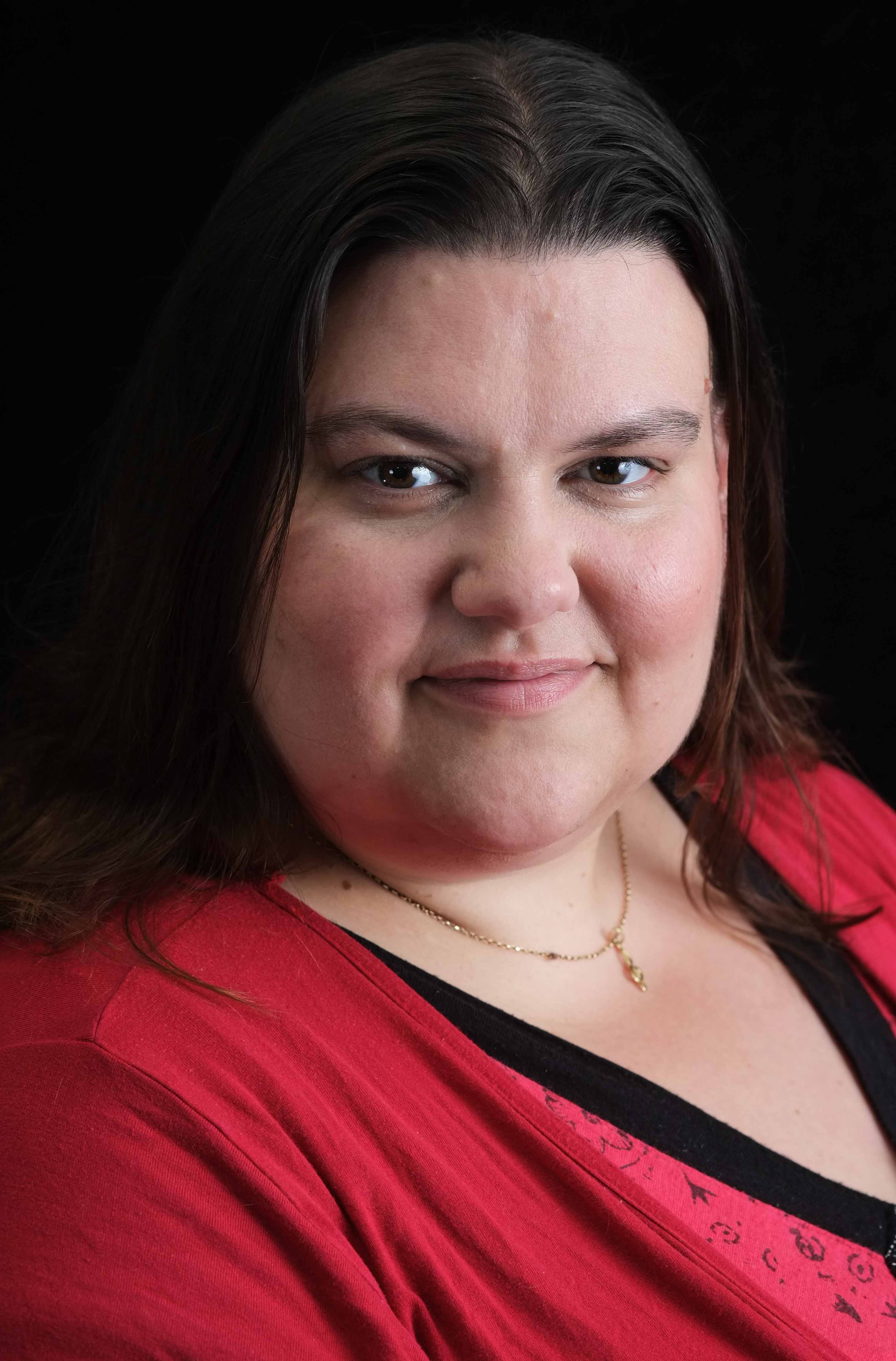Karen Latto spent seven years teaching before becoming a subject specialist for OCR, overseeing the new GCSE syllabus for drama which came into classrooms last year. Mark Glover spoke to her about her career, the challenges of instigating a specification and how digital theatre allows more students across the UK to take GCSE drama.
The night before I spoke to Karen Latto to conduct this interview, there had been a tremendous thunderstorm in the south of England. My dog, a still sprightly retired greyhound had spent a frantic time pacing the floors with anxiety. Karen, who lives in Saffron Walden, in Essex had heard her neighbour’s cats scuttling around trying to escape the crashes and bangs.
The next morning though the world seems a calmer place. The dog is settled back on his bed, oblivious to the previous night’s drama and only a few stray leaves on the lawn give a nod to what happened twelve hours before.
I’m reminded of the phrase ‘calm before the storm’ (although in this case the calm is after) and think about the twelve months bedding-in period that the new OCR GCSE drama specification – overseen by Karen – has had. I wonder if she’s satisfied with the outcome, of what must have been a long and occasionally challenging process?
“What we put together was a really good specification within the constraints of what we had, she says. “Ours was the last one to be accredited because we kept fighting. The smaller changes that we did make to compromise and get accredited means we’ve definitely got a better assessment at the end of it.”
Prior to joining OCR in 2014 as a Subject Specialist for Drama, Karen spent seven years teaching the creative arts; drama, music, media and some English in and around the Herts, Essex and Suffolk area.
Like many sixth form students Karen was unsure which career path to follow. Her qualifications were a spectrum of subjects; A-levels in English literature and theatre studies contrasting with AS-levels in maths, chemistry and law. She eventually opted to studying bio-medical science at Greenwich University however, halfway through the first year she realised that this wasn’t for her, and her heart lay with the arts. She finished the year out in South London and then applied to York St. John University to study theatre, film and television. “It was the best decision I’ve ever made,” she affirms.
After graduating in 2007, and following the birth of her sister’s baby and wanting to be nearer her family, she returned home and took a technician job in a media department at a local school. It was here, surrounded by impassioned teachers, her own teaching juices began to bubble. “It was such an amazing school, she enthuses. “I was really inspired by the other teachers, so much so, the next year I started teacher training.”
Seven years on, and while browsing the Times Education Supplement, she spotted the role at OCR that she would eventually get. Among other responsibilities the job would involve the development of the new GCSE (9-1) drama specification for launch just two years later, in 2016.
The appointment came at a good time for Karen. She enjoyed teaching, realised she was rather good at it, but now wanted to develop into another phase of the education industry and the position at the examining board seemed to tick all the right boxes. “The role at OCR had me working with teachers all over the country and had me involved with developing new qualifications, she says. “I was really intrigued by it and I loved it.”
Producing a specification though takes more than enthusiasm and passion, but Karen and her team, worked closely with teachers all over to help lay a foundation; the feedback gave insight into the brilliant job teachers are doing, as well as seeing some of the other challenges that they face. “Many teachers find themselves caught between a rock and a hard place, “she explains. “But it’s brilliant to see how they manage that in a difficult situation as well.”
Teaching drama at secondary school, up until GCSE has always been a fairly sporadic affair, however the specification that becomes implemented at that point creates more structure within the classroom. Yet this September teachers will have to mould their ways to prepare students for a written exam, something which is new to the subject. It’s this, along with the change in content, that Karen feels could create a sticking point.
“Drama has the problem that not only has the content changed but the assessment has changed to, and that’s been a massive challenge for teachers. The teaching they’re doing at the moment is mainly things that they know,” she observes. “But come September there will be a lot of teachers who will start teaching for a written exam and a lot of teachers have not done that in drama, either for a very long time, or ever.”
Karen admits that anxiety exists over the inaugural exam, mainly due to its unknown impact. She does think this could recede when the first paper goes live. She hopes that teachers will order back papers from this first round enabling candidates to see why those students got those particular marks, conversely teachers will begin to interpret the marking criteria and will begin to understand the levels.
An issue is the small nature of drama department personnel, compared to other subjects which could have four or five staff which allows for internal discussion about the experience of teaching written exams. “If you’ve never taught a written paper before, it’s very challenging to pick that apart, especially if you’re a one-man department, as you haven’t got anyone to bounce off,” she warns.
One solution is for drama teachers to collaborate with their colleagues in the other creative subjects particularly music, as its listening paper was used as a blueprint for the OCR drama paper. “People should ask their colleagues in those departments how they mark the mock papers,” she advises.
For the new specification to achieve accreditation, Karen and her team had a series of discussions and negotiations with two stakeholders; the Department for Education (DFE) and the Office of Qualifications and Examination Regulation (Ofqual), both of which had to give approval before being given the go-ahead.
During the process many proposals were rejected, of which Karen is unable to talk about. Something she finds challenging. “I had lots of discussions with Ofqual and DFE,” she says. “I know all the things that were proposed but got rejected, and these are the things I can’t talk about and that’s really hard.”
I ask her about another challenge she faced during the process, in particular the controversy caused by the specification not requiring students to watch live theatre, and approving analysis of a screened digital recording instead.
The reaction was almost one of outrage amongst Britain’s acting community, with Tim Pigott-Smith, Robert Lindsay and Meera Syal amongst others penning a letter to the Sunday Times expressing their concerns.
Part of the letter read: “We fear that the designation of digital recordings as live theatre may remove the need for teachers to arrange such events, resulting in pupils missing out on invaluable social, cultural and artistic experiences.”
Karen was often used as a spokesperson to try and quash the negativity and I asked her what she thought of those reactions a year on? “If you ask any drama teacher if kids should go to the theatre they will categorically say ‘yes,’” she says. “What I learnt putting this specification together is you have to balance what is right for the kids and what is right for the subject. What can be assessed versus all the risk of qualification.”
Most readers will be aware of the squeeze on English and drama budgets and it’s an issue that Karen took into consideration during the consultation period. “They’re being squeezed enough as it is,” she continues. “If you’ve got a group of schools in rural Norfolk who are two hours away from anywhere, it’s going to cost £400 or £500 to get one production company in for one assessment.”
She pauses for a moment and says something that confirms Karen was the right person for this job. “How many students will not do drama if we don’t allow using screens as an option? She asks, “It would absolutely break my heart if we knew there were there were three or four schools out there who couldn’t do GCSE drama because of a decision I’d made.”
Karen is now self-employed, working as an education consultant. (“It’s good fun. Exciting and terrifying at the same time.”) She works with teachers on their Career Progression Development (CPD) goals and is aware of the importance of CPD to the profession but recognises the time restraints. “They value good quality CPD, she says. “But they are struggling to get out of school. They have to do things in the evenings, after schools or on Saturdays.”
Going forward, Karen is also speaking at several conferences, including the Teaching and Drama Expo this October in Manchester. Beyond that she tells me with a certain amount of justifiable pride, that she has just been accepted to do her Masters in Education, part time, at Cambridge no less. It will certainly be another challenge but given what Karen’s achieved so far, it will be one that she’ll thrive in.



